|
In the blog post "What makes you great at your profession?" I pointed out the importance of asking a fundamental question on what makes one great at your profession to improve. However, there is a negative side to being obsessed with being great at your profession. Again, I will use the modern classic "Remains of the Day" by Kazuo Ishiguro as an example. As I pointed out in the blog post, "What makes you great at your profession?" James Stevens gives a lot of thought to what makes one a great butler. He came up with two attributes: dignity and attachment to a distinguished household. I wrote this blog post because there is a price one pays to be great at something. We always focus on the gain and not the loss of being great. But as you will see from reading this post, you always lose something to gain something. And sometime trying to be great at something can have deleterious effect on you personally, professionally and/or financially. With Stevens, two monumental things are happening at the same time. One, he is about to lose Miss Kenton. Second, he is going to let his employer disgrace himself by being a Nazi sympathizer. Stevens' employer has been hoodwinked by the Germans about their true intentions. He is hosting a meeting between the British Prime Minister, Foreign Secretary, and the German Ambassador where a decision will be made. That decision will involve the British Prime Minister to appease Adolf Hitler and allow Germany to occupy part of Czechoslovakia, known as Sudetenland if, in return, Hitler promises to preserve peace but not invading any countries. For Stevens, two monumental things are happening at the same time that is going to give him regrets later but is completely oblivious of it as it is happening. He can't see anything besides what he is conditioned to see happening. Miss Kenton James Stevens is about to lose Miss Kenton forever. She informs Stevens that she has received a marriage proposal. Miss Kenton is trying to gauge whether Stevens has any romantic interest in her. She tells Stevens on two occasions that she has still not made a decision. Stevens doesn't say anything to make her not accept the proposal. Miss Kenton tries one more time to make sure that Stevens has no interest in her by asking, "But I can see you are very unhappy about my going out tonight." Stevens is focused on being a great butler for the big meeting that will be taking place in the mansion. He does not say anything to prevent Miss Kenton from accepting the marriage proposal. When Miss Kenton comes back from her meeting, she wants Stevens to know what happened as she asks him, "Are you not in the least interested in what took place tonight between my acquaintance and I, Mr. Stevens?" Stevens shows no interest as he replies, "I do not mean to be rude, Miss Kenton, but I really must return upstairs without further delay. The fact is, events of a global significance are taking place in this house at this very moment." Stevens is only focused on being a great butler by maintaining his dignity and doing his job well, so his employer plays a significant part in serving humanity. To Stevens, Miss Kenton leaving him for another man is insignificant. Significant Meeting Stevens leaves Miss Kenton to attend to his butler duties when he runs into Mr. Cardinal. The latter is a young man well acquainted with Stevens. Mr. Cardinal is a godson of Stevens' employer. In his meeting with Stevens' employer, he learned the significance of what is taking place at the mansion. He tries to convince Stevens to do his part to save his employer from being duped and disgraced. Like Miss Kenton, Mr. Cardinal gives Stevens several chances to save his employer from ruining his reputation as a Nazi sympathizer. Mr. Cardinal asks, "Stevens, do you know what is happening at this very moment as we sit here talking?" Stevens has no curiosity at all about the significance of what is taking place. He just wants to be a great butler. When pressed further by Mr. Cardinal, Stevens replied. "It is not my place to be curious about such matters, sir.' Mr. Cardinal asks if he has seen how his employer has been hoodwinked by the Germans for the last three to four years regarding their true intentions. To which Stevens replies, "I'm sorry, sir, I have failed to notice any such development." Stevens could not save Miss Kenton from leaving him, nor could he save his employer's reputation. He was oblivious to what was happening that evening. From Stevens's viewpoint, he was very pleased with how everything turned out. He maintained his dignity and served his employer well so his employer could do his part in "helping" humanity. So my point in using this example is to show that being great at something is fine, but it has the potential to create blind spots that could make you vulnerable to losing something else. There is no such thing as a free lunch when it comes to being obsessed with greatness. In closing, I want to use a real-world example in Deborah Birx, President Trump's White House coordinator for the pandemic response, that shows when one is obsessed in serving one's employer, it can produce catastrophic result. In the Op-Ed in Washington Post by Matt Bai titled "The Birx dilemma is a lesson for the ages," he writes that appeasement "doesn’t work for nations facing down aggressors. It doesn’t work for a political party that’s been taken over by a nativist bully. And it doesn’t work when you’re serving a president who demands unyielding loyalty and a willful disregard for the truth." The catastrophic result, according to her that more than 400,000 people didn't have to die from Covid-19. Deborah Birx had earned her stellar reputation as doctor who was involved in the global fight against AIDs. Because of her greatness, she was picked to advice President Trump. And that's where she developed a blind spot in protecting him over the American people. Though she may try her best to salvage her reputation, but most irreparable damage has been done. Sooner or Later, we all will face this dilemma like James Stevens in "Remains of the Day," and Deborah Birx in real life. How will we handle it? ##### 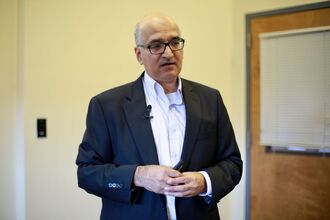 I am an author, speaker, career success coach. I guide people thrive on high stakes stage whether it's for a job interview, career advancement, a sales presentation or a high-stakes speech. I am the author of a practical book on speaking titled Winning Speech Moments: How to Achieve Your Objective with Anyone, Anytime, Anywhere. The main idea of the book is that if you want people to remember your speech and take action, you must create a winning speech moment. Please download the free speech checklist I created that I always use to create a winning speech for any occasion. Please contact me if you would like to thrive on high stakes stage. You can reach me at [email protected] or 732-847-9877. Note, if you are an author, executive, podcaster or interesting and would like me to interview with five questions and then publish it as a blog post and promote it on LinkedIn, Twitter and Facebook and become famous, please contact me.
0 Comments
When was the last time you asked this question? You probably have never asked if you are like me, let alone even thought about asking this question. But how would you answer this question if you are asked at the final stage of your job interview? The answer could determine whether you get the job or not. I think it's a great question that will tell a lot about how you think, act, and excel in your profession. After reading the modern classic "Remains of the Day'' by Kazuo Ishiguro, I started thinking about this question. In the book, James Stevens, a butler, asks, "what makes a great butler?" He gives a lot of thought to this question as he is traveling in England's countryside. He comes up with two attributes of a great butler: dignity and attachment to a distinguished household. Dignity By this, Stevens means a butler gets the job done for his employer without anyone even knowing it. There are other attributes, such as competence, that are important, but it's dignity that stands above all for being a great butler. Stevens believes one could develop dignity through hard work, experience and self-learning. Stevens gives three examples of what he means by dignity in a great butler. I will use two of the examples in this post. The first one is a story Stevens heard from his father, who was also a butler. Stevens considered his father to be a great butler. The story is about a butler who had traveled with his employer to India and the incident that showed the butler's dignity in handling a dangerous situation. One afternoon the butler entered a dining room and saw a tiger relaxing below the dining table. The butler calmly approached his employer in a drawing-room (today it would be called a living room) where he was having tea with his guests. The butler let out a polite cough to get his employer's attention and whispered in his ear that there was a tiger in the dining room. He asked for his permission to use a shot-gun to take care of the situation. Soon, three shots were heard. A few minutes later, the butler appeared in the drawing-room to refill the teapot. When the employer asked if everything was fine, the butler replied, "'Perfectly fine, thank you, sir...Dinner will be served at the usual time, and I am pleased to say there will be no discernible traces left of the recent occurrence by that time." Stevens mentions that his father always laughed when he would repeat when butler added "no discernible traces left of the recent occurrence by that time." He was laughing since the butler is saying to his employer you don't need to explain anything to your guests since there is no evidence of anything occurring. The butler in the story did not panic. He got the job done and, most importantly, maintained his and his employer's dignity by not having the employer's guests get frightened and ruining their pleasant visit. The other incident of dignity involved Steven's father when he was a butler. This story was relayed to Stevens by someone named Mr. Charles, who was present when it occurred. One day Mr. Charles and two of the guests of an employer got in a car to be driven around by Stevens' father. The guests were drunk and got rowdy. They started criticizing Stevens' father for what they perceived was his driving mistake. They also started criticizing Stevens' father's employer. That was the breaking point for Stevens' father. He stopped the car, opened the back door, and just stood there showing his displeasure at the two guests. The guests had no idea what Stevens' father was going to do next. He just stood there with the door opened. Soon the two guests realized that they were at fault, and one of them muttered. "I suppose we were talking a little out of turn there. It won't happen again." Stevens' father gently closed the door and continued his driving as if nothing happened. Stevens shows that his father did not lose control, confront the guests, or return home immediately. He calmly handled a difficult situation with dignity. No one got hurt, and the employer didn't have to know what happened. Everyone's dignity was preserved. Attachment to a distinguished household The second trait to being a great butler is belonging to a distinguished household working for a renowned man. The reason for this is, as Stevens explains, that movers and shakers of the political and business world meet at such mansions where big decisions are made. A butler's job is to make sure everything goes smoothly. The great butler makes sure that the employer looks good and plays his part in solving big problems. As Stevens gives more thought to this, he says, "association with a truly distinguished household is a prerequisite of 'greatness.' A 'great' butler can only be, surely, one who can point to his years of service and say that he has applied his talents to serving a great gentleman – and through the latter, to serving humanity." What makes one a great public speaker? I am a public speaker, so I thought about this question like James Stevens. I believe a person is considered a great public speaker if he or she achieves the following: 1) moves people to action 2) speaks the truth 3) takes personal risks 4) changes the world in a positive way 5) becomes immortal through his or her speeches Based on these criteria, the list gets very narrow, and we're left with Socrates, Jesus, Lincoln, Gandhi, JFK, MLK, and Malcolm X. The negative side of being great at your profession There is also a negative side to being obsessed with being great at your profession. To learn more on how this obsession ends up hurting James Stevens, I encourage you to read my blog post titled, "Being great at your profession creates blind spots." #####  I am an author, speaker, career success coach. I guide people thrive on high stakes stage whether it's for a job interview, career advancement, a sales presentation or a high-stakes speech. I am the author of a practical book on speaking titled Winning Speech Moments: How to Achieve Your Objective with Anyone, Anytime, Anywhere. The main idea of the book is that if you want people to remember your speech and take action, you must create a winning speech moment. Please download the free speech checklist I created that I always use to create a winning speech for any occasion. Please contact me if you would like to thrive on high stakes stage. You can reach me at [email protected] or 732-847-9877. Note, if you are an author, executive, podcaster or interesting and would like me to interview with five questions and then publish it as a blog post and promote it on LinkedIn, Twitter and Facebook and become famous, please contact me. Timing is very important. Daniel Pink wrote about the importance of timing in his excellent book "When: The Scientific Secrets of Perfect Timing." As Daniel Pink points out, there are tons of books on how-to but very few on when-to. In his book, Pink throws a lot of science at you. In this post, I will throw some literature at you to show the importance of timing. Timing is important, but your approach is also important; hence, there are two parts to success: when-to and how-to. You could do everything right, but you are likely to fail if it does not take place at the right time. But if you get the timing right, then how-to may not be that important. But you don't want to wing it either just because you got the timing right. Ideally, you want to get both when-to and how-to right when you want something. In this post, I am going to use an example from a modern classic novel. I will look at the situation James Stevens, a butler at Darlington Hall, finds himself in the book "Remains of the Day" written by Kazuo Ishiguro. Since we deal with this situation occasionally, I will present the example as situation, problem, solution, outcome, and lessons learned. Situation A butler named James Stevens has a new employer of Darlington Hall, Mr. John Farraday. Farraday suggests to Stevens to get out of Darlington Hall and take a journey in his car from the countryside of England to the West Country. Farraday will cover the cost of the gas. While Stevens is thinking about it, he receives a letter from a former housekeeper named Miss Sarah Kenton. Stevens reads in the letter's content that Miss Kenton may be open to coming back to her old job at Darlington Hall. He also learned that Miss Kenton resides in the countryside where Farraday suggested he take a trip. Stevens wants to bring this up with Farraday that he will travel to the countryside. He also wants to bring up whether Farraday would cover the cost of lodging, meals, and snacks. Furthermore, Stevens also has a professional reason to make the trip. Problem How to bring this up with Mr. Farraday? Stevens wants to make the trip and would like to hire Miss Kenton if she is interested. Stevens is thinking about the timing. If the timing is not right and Farraday says "No," then Stevens believes it would be difficult to bring it up again. Stevens has concluded that it is one and done. Solution He decided that he will bring it up during the afternoon tea. This was the right time. Stevens got the when-to figured out. Outcome Stevens was right on the timing but was off on the how-to. He did not work on that part right which bothered him. It did not go as he expected. Stevens did not take into account that Mr. Farraday likes to banter at that time of the day. Stevens mentioned that a former housekeeper resides where he was planning to travel. The conversation went in a different direction than he anticipated. Stevens realized he made a mistake bringing up Miss Kenton before explaining the situation first and the need to hire an additional staff member. Farraday commented, "My, my, Stevens. A lady-friend. And at your age.' Stevens did not want to make a second mistake by saying anything more. Lesson Learned Timing is important. But how-to is also important. Stevens gets an "A" for timing but an "F" for his approach. What should he have done? How-to Stevens could have done the how-to it as Lisa Earle McCloud writes in her blog post on LinkedIn titled "How To Get People To Buy Into Your Ideas." In the post, she recommends you do it in the following order: context, framing, and content. Context -- Present the situation. Framing -- Help someone understand the situation better. Content -- Show how to address the situation. Stevens could have done it as follows: Context -- Increase in workload at Darlington Hall Framing -- Need to hire an additional staff member Content -- Explore whether Miss Kenton would be interested in coming back as a housekeeper when he travels to the countryside That is how he would have liked to present it, but it didn't matter. In his case, the timing was more important than the approach since he did the smart thing by not saying anything during Farraday's bantering about Stevens mentioning Miss Kenton. But this is literature, and it worked out for Stevens. Real-Life Situation Here is a situation many encounter: When and how to ask for a raise? First, when is the best time to bring it up? Second, how do you do it? Context -- Department was not closing a lot of deals before you joined Framing -- Department closing more deals after you joined Content -- Salary raise is justified based on performance In real life, you want to focus on both when-to and how-to if you want to increase your chances of success. ##### 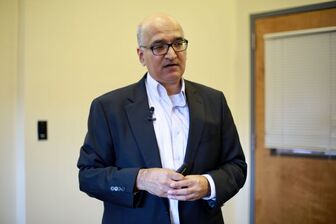 I am an author, speaker, career success coach. I guide people thrive on high stakes stage whether it's for a job interview, career advancement, a sales presentation or a high-stakes speech. I am the author of a practical book on speaking titled Winning Speech Moments: How to Achieve Your Objective with Anyone, Anytime, Anywhere. The main idea of the book is that if you want people to remember your speech and take action, you must create a winning speech moment. Please download the free speech checklist I created that I always use to create a winning speech for any occasion. Please contact me if you would like to thrive on high stakes stage. You can reach me at [email protected] or 732-847-9877. Note, if you are an author, executive, podcaster or interesting and would like me to interview with five questions and then publish it as a blog post and promote it on LinkedIn, Twitter and Facebook and become famous, please contact me. In the HBR article “When CEOs Make Sales Calls,” Noel Capon and Christoph Senn identify five archetypes of CEO Sales Engagement: Hands-off, Loose Cannon, Social Visitor, Dealmaker, Growth Champion. According to the authors’ research, the most effective archetype is the growth champion. They write that leaders who exhibit growth champion behavior “focus on both relationships and revenue building, and as they unlock growth opportunities, they serve as role models for others in the organization.” Unfortunately, they make up only 14%. What makes growth champions effective is they engage with strategic customers and see things from customers’ points of view and how their company can help the customers solve their problems. We see an example of that with the tweet sent by Marc Benioff, CEO of Salesforce, to Governor Murphy of New Jersey and Mayor Bowser of Washington D.C. From reading the Businessweek article, Benioff knows that both Governor Murphy and Mayor Bowser have a big problem getting people vaccinated. And he knows that they don’t want to be in the news every day that they are not getting the job done. So he sends a tweet to see if he can help them. Benioff probably sent this tweet in consultation with the sales and marketing team working on those accounts. Benioff captures the main points in the tweet. 1) What can Salesforce do for them? Replace their failed Microsoft implementation---for FREE. 2) What has Salesforce done with other similar clients? They have 100s of success stories of vaccine implementations. 3) How can they get in touch with Marc Benioff? Send him an email to [email protected]. 4) How did he come to know of their problem? Businessweek article. 5) Why send this tweet? It shows that he is a growth champion and ready to help a potential customer solve their problem. Furthermore, he is modelling a behavior throughout the Salesforce organization on how to achieve growth. And Salesforce is still growing. Note, I have no information whether this tweet got a reply from Governor Murphy or Mayor Bowser. But it should have. Today, speed wins. Is your CEO ready to get engaged in helping you get into an account to grow business? If not, show him how Marc Benioff does it being a growth champion. Perhaps you can get your CEO to help you close strategic deals. ##### 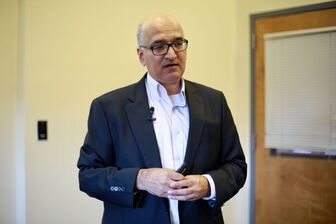 I am an author, speaker, career success coach. I guide people thrive on high stakes stage whether it's for a job interview, career advancement, a sales presentation or a high-stakes speech. I am the author of a practical book on speaking titled Winning Speech Moments: How to Achieve Your Objective with Anyone, Anytime, Anywhere. The main idea of the book is that if you want people to remember your speech and take action, you must create a winning speech moment. Please download the free speech checklist I created that I always use to create a winning speech for any occasion. Please contact me if you would like to thrive on high stakes stage. You can reach me at [email protected] or 732-847-9877. Note, if you are an author, executive, podcaster or interesting and would like me to interview with five questions and then publish it as a blog post and promote it on LinkedIn, Twitter and Facebook and become famous, please contact me.  Fred Dust Fred Dust Thomas Watson, Sr., President of IBM from 1914 to 1956, coined the phrase "Nothing happens until a sale is made." But a sale doesn't just happen; you must make it happen. And that often involves having good conversation skills. In this blog post, I interview Fred Dust, an expert on creative conversation. Suppose you want to succeed in life, business or relationships. In that case, you must cultivate and master your conversation skill no matter how long you have been having conversations that matter. Most of us think we know how to have good conversations with people. But there is a lot involved in developing creative conversation skills to move things forward. I learned this from reading Fred Dust's outstanding book, "Making Conversation." Conversation is like breathing. We all do it but hardly pay much attention to it. As you will learn in the book, your success often depends on how effective you are in designing creative conversations. Fred Dust has become an expert in designing creative conversation from his life and work experience. When he once had a meeting with the Prime Minister of Greece, George Papandreou, Dust gained valuable insight about conversation that "designing slower dialogue may actually allow us to solve big problems." According to Dust, a creative conversation must move things forward. He writes in his book that "It must help us shift from thinking and talking into the act of doing. Agreement cannot be enough; action is required… [It] must work to resolve differences, must explore hard issues, and must be aimed toward a positive outcome." Dust applies what he learned about the design aspect of conversation, working as a Senior Director and Global Managing Director at IDEO, a global design and innovation company. A good design of a conversation consists of seven essential components: Commitment, Creative Listening, Clarity, Context, Constraints, Change and Create. Spend time and practice these seven components of creative conversation. You will start having good conversations and will start moving things forward, even a sale. I want to thank Fred Dust for answering the questions and Lindsey Armeen for facilitating getting this blog post completed. Five Questions Q: How much preparation do you go through before any meaningful conversation you are going to have? Can you share an example of preparation you did recently before having a conversation? How did it go? Do you do pre-mortems before having a conversation and post mortem afterward? To begin where you end, I don't tend to call things pre-mortems and post mortems as that assumes that the conversation has already died. In my book, I talk a lot about setting the space ahead of time. Thinking about context and the explicit and implicit rules of the conversation and most especially committing to the conversation. When we think about 'preparing' for a conversation, our natural default is to think -"What is it that I am going to say?". And what I am advocating for is sort of the opposite. Spend your time thinking about everything but what it is you are going to say. For example, is the conversation taking place in an environment and setting that is conducive to the outcome you are seeking? Before every team meeting, I would always clear the room and the whiteboards of everything non-essential. Everything that might distract from what our conversation was centered around. But I even still do this with my husband before dinner every night. We clear the table of everything. Or even more simply, ask yourself if you are committed to the conversation. Not committed to being right. Not committed to the answers you want to hear. But committed to giving of yourself fully at that moment to the other person/people in the room. Q: How should one design a conversation during a job interview? Here is what I usually recommend to people I coach. You can tell me what you would do to make the conversation design better. Intro -- Brief two to three-minute statement that includes the following: ● Message ● Narrative ● Value you can deliver to an employer Middle: Focus on one to three problems you can solve that will add value to a company Ending ● Validate that you understand the job with the interviewer ● Address any concerns interviewer may have about your ability to do a good job ● Summary:
That's a really great and useful template. Every interview is nerve-wracking no matter who you are, and so preparation templates like this are often the best way to cultivate a feeling of confidence vis-a-vis preparation. But it reminds me of a story one of the guys on my team told me about when he was a Producer auditioning actors for parts that taught him a great lesson about interviews. That lesson was; make a genuine connection first, worry about memorizing the lines second. Often the very simple question I will ask someone in an interview is; tell me your origin story, like you we're a Marvel superhero. That's because like the producer, I'm looking to see if this person fits the part, do they have a good connection with what the job will need. Clearly, job interviews are not acting gigs. Preparation and gameplans like the one above are super important. But I tell people that being completely present and available to the conversation, creating a real human connection with the person you are talking with, often goes just as far if not further than the polished interview. So why not do both! Q: When you write in your book that conversation "must work to resolve differences, must explore hard issues, and must be aimed toward a positive outcome," do you mean from both sides? If so, then a conversation you are talking about is really a negotiation? Again if you say negotiation, you see negotiation. I feel like the word makes a conversation sound hostile, it's why I don't use it, but in fact, no, I don't really mean negotiation. Our conversation scripts are operating without our "approval" or without our conscious awareness of them\ all day long. So my goal is just to help people get better at noticing those scripts, so they don't unintentionally derail or prevent a productive conversation from happening. To get to your question, when we say "negotiation," for many of us, that word evokes car salesman or FBI hostage negotiator. And while both of those things can be illustrative examples of kinds of conversation, their connotation is mostly adversarial, which is a script I'm trying to steer us away from. I say this because I am not a postmodernist. I don't believe all language games are power games. I believe that language games can also be mutual discovery games and communion games. So good conversation is about exploring both where tension and alignment points are, figuring out why they're there, and then seeing what if anything we can do about it. That is a negotiation of sorts technically, but it's also so much more than that. It's a collaboration and a journey too. One final note on that point, if both parties are acting in good faith and are committed to the conversation but cannot resolve a tension point... I tell people that that's ok too. The idea I try to get across in the book is that it's ok to arrive at those moments. But you have to try first. Q: With short attention spans, how can you make it easier for someone to listen to you? How do you keep it short, simple, and impactful? Should you use simple sentences? Should you keep repeating the main message you want to convey? Should you not assume that the other person knows what you know? I LOVE this question, thank you. Some of the best feedback I have been getting from the book is centered around this topic which surprised me at first but makes total sense in retrospect. Our days feel compressed. We are on zoom nonstop. Our time and attention are fractured. And it is more difficult to stand out over the noise. So in light of that, my advice to people is two-fold. 1.) One of my entire chapters is devoted to clarity. Make things simple and accessible. We are drowning in word-salads and corporate lingo and legalese. Clarity creates lasting impressions in the listener's mind and makes it so the conversation stays accessible to the people who need to access it. 2.) I tell people to get good at telling what I call "illuminations." Illuminations are short 2 minute stories that capture the essence or spirit of what you are trying to convey and reveal to the listener something about you. All illuminations should have four things in common. Number 1, they are short. Number 2, they should end where they start. Number 3, they should all have a twist or a surprise baked in them, and Number 4... well in the spirit of Number 3, you need to read the book to find out. Q: To move things forward, should you ask "What can we do?" instead of "What do you think?" so the other person has to address what you can do together to advance something? Oh yes, I love this question as well thanks again. One of the guys who works for me is a big neuroscience nerd, and he always wants to talk about left-brain/right-brain synchronization and activation, and I just always remind him he's forgetting my chapter on clarity. He would say that we need to get out of left-brain analytical/rigid thinking where conversations can get hung up. Instead, I would just say; we need to get into proactive doing. Simply put, if you can't talk with someone, if there is just nothing you can agree on, then go make something with them. Do something with them. Build a barn. Bake bread. Clean out the garage. Play a sport. Both of these are getting at the same idea, of course, it's just my way of phrasing it is more fun. Books Recommended by Fred Dust Jubilee: Recipes from Two Centuries of African American Cooking: A CookBook by Toni Tipton-Martin The stories will reveal elements of history, surprise as well as sustain you in remarkable ways. Jane Austen Novels: Pride and Prejudice Sense and Sensibility Persuasion Mansfield Park Emma Northanger Abbey AudioBook Collection If you want to see how witty and powerful conversations happen and how gossip can change the world. Giving Voice to Values: How to Speak Your Mind When You Know What’s Right by Mary Gentile. Mary goes deep into what allowed whistleblowers to call out injustice with some surprising revelations on how and who can do it. Fred Dust’s Contact Information LinkedIn: https://www.linkedin.com/in/freddust/ Twitter: @f_dust Website: https://makingconversation.com/ Fred Dust’s Appearances Discussing “Making Conversation” YouTube: Making Conversation: Seven Elements of Meaningful Communication by Fred Dust Host: Chris Voss How to Make Meaningful Conversation Host Mary Stack - GBH Forum Network Making Conversation Host: George Hammond - Commonwealth Club if California Audio Podcasts The Unmistakable Creative with Srinivas Rao How to have the most challenging conversations of your life Curious Minds at Work with Gayle Allen CM 180: Fred Dust On Making Conversations Better Happen To Your Career Make Better Conversation: Key Lessons To Connecting With Anyone The Conversation Factory with Daniel Stillman Making Conversation with Fred Dust ##### 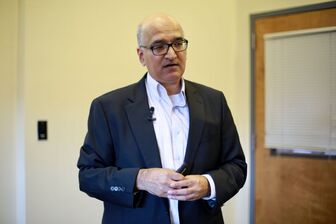 I am an author, speaker, career success coach. I guide people thrive on high stakes stage whether it's for a job interview, career advancement, a sales presentation or a high-stakes speech. I am the author of a practical book on speaking titled Winning Speech Moments: How to Achieve Your Objective with Anyone, Anytime, Anywhere. The main idea of the book is that if you want people to remember your speech and take action, you must create a winning speech moment. Please download the free speech checklist I created that I always use to create a winning speech for any occasion. Please contact me if you would like to thrive on high stakes stage. You can reach me at [email protected] or 732-847-9877. Note, if you are an author, executive, podcaster or interesting and would like me to interview with five questions and then publish it as a blog post and promote it on LinkedIn, Twitter and Facebook and become famous, please contact me. |
AuthorJay Oza Archives
July 2024
Categories
All
|
© 2017 Winning Speech Moments




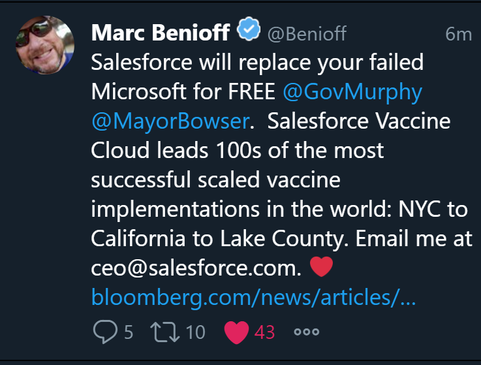
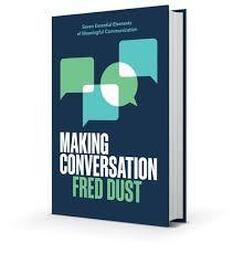
 RSS Feed
RSS Feed